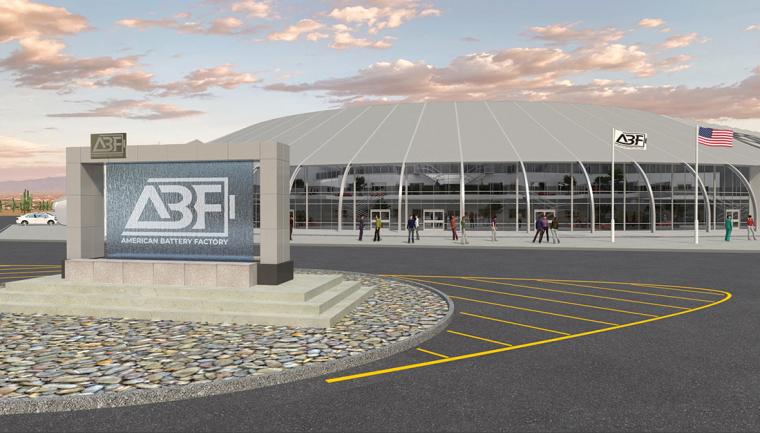
In 1987, the United Nations Brundtland Commission defined sustainability as “meeting the needs of the present without compromising the ability of future generations to meet their own needs.”
Arizona puts this theory into practice. With abundant solar and renewable energy, a rapidly growing battery and electric vehicle (EV) industry and a thriving research and development ecosystem, Arizona has become a magnet for projects promoting sustainability.
Since 2016, the Grand Canyon state has celebrated five electric vehicle groundbreakings, including luxury carmaker Lucid and innovator Nikola. A growing EV manufacturing core has given birth to a robust auto supply chain, including major battery projects.
In less than two years, Arizona has attracted more than eight battery expansions representing manufacturers, recycling and mineral processing. In October, American Battery Factory celebrated the groundbreaking of a $1.2 billion battery manufacturing facility in Tucson, an operation that will support 1,000 jobs.
In April, LG Energy Solution, a global battery manufacturer, announced a $5.5 billion battery manufacturing complex in Queen Creek, the largest single investment for a standalone battery manufacturing facility in North America.
“These Arizona-made batteries will power green, sustainable technologies around the world, cementing Arizona’s reputation as an innovation hub for renewable energy,” said Arizona Governor Katie Hobbs.
Green Projects Power Job Growth

According to a report from Climate Power, Arizona added nearly 13,000 clean-energy jobs through August, ranking it as the seventh best in the United States. The jobs represent more than $8 billion in private sector investment across roughly a dozen new projects.
Other green projects breaking ground across the state include:
•The Box Canyon Solar Project broke ground in November 2023. The initiative is building a 300-megawatt solar operation large enough to power 77,000 Arizona homes and businesses annually.
• We Recycle Solar, North America’s first solar panel recycling plant, which expanded operations at its Yuma, Arizona facility, plans to process 345,000 pounds of material for recycling and reuse in a single day.
• The Chevelon Butte wind farm, a $680-million project in northeastern Arizona, will provide the capacity to power 110,000 homes a year.
• EVelution Energy, which announced the construction of a solar-powered, carbon-neutral cobalt sulfate production facility in Yuma County, is the first cobalt production facility in the United States.
“Sustainability is in our DNA, making Arizona a natural fit for industries powering the world’s transition toward green technologies,” said Sandra Watson, President and CEO of the Arizona Commerce Authority.
Pioneering CarbonTech

Among Arizona’s many developing green industries is CarbonTech, which involves the removal of carbon dioxide from the environment and industrial processes through techniques such as carbon storage, carbon capture and carbon conversion.
One example can be found in Flagstaff, where Block-Lite, a family-owned manufacturer of masonry blocks, has teamed up with startups Aircapture and CarbonBuilt to practically eliminate carbon production from the process of creating concrete blocks. Under the terms of the unique partnership, multiple direct-air-capture machines remove carbon dioxide from the surrounding air. The recaptured carbon is then used as an input ingredient to manufacture concrete. The result is a reduction of emissions by as much as 70 percent compared to more traditional concrete production processes.
“It’s a win-win because it makes good business sense and good stewardship sense, too,” said Ryan Ross, Block-Lite’s CEO. “I think it will change the perception of our industry, too, and show that we can do what we have been doing and still be sustainable.”
CarbonTech is a rapidly emerging industry that received considerable attention in the 2022 Inflation Reduction Act (IRA). The IRA contains $500 billion in funding directed toward financing research, development and commercialization of leading-edge sustainability technologies such as carbon capture and storage and clean hydrogen.
Arizona’s World Class Research
Arizona’s world class universities represent key ingredients in advancing the state’s green technology ambitions.
In April, Arizona State University (ASU) was ranked number one in the United States and number two in the world for its sustainability practices by the Sustainability Tracking, Assessment & Rating System, or STARS, a program by the Association for the Advancement of Sustainability in Higher Education.
“Without question, the frontier of carbon removal and reduction is here in our state,” said Sangeev Khagram, dean and director general of ASU’s Thunderbird School of Global Management, which in 2021 launched the Global Carbon Removal Partnership. “We are taking our projects and experiences here and saying, ‘This can be done all around the world.’”
Similarly, Northern Arizona University’s graduate and undergraduate degrees in sustainability focused on Climate Science, Environmental Science and Earth Sciences ranked in the top 20 nationally in Gizmodo’s “Degrees of the Future 2022.”
Not to be outdone, the University of Arizona ranked second in the United States and eighth worldwide in water resources, according to ShanghaiRanking's 2023 Global Ranking of Academic Subjects, a nod to the university’s global leadership in areas such as freshwater science and agricultural technology.
“The university's decades-long work in the field of water resources is one of our defining characteristics,” said University of Arizona President Robert C. Robbins.
Sustainability has become a driving force in economic development. With industry, government and academia in close alignment, expect Arizona to continue to be a global leader in advancing green and sustainable technologies.
To learn more about how Arizona is advancing sustainable initiatives, visit:
www.azcommerce.com/big-ideas/renewable-energy. T&ID

